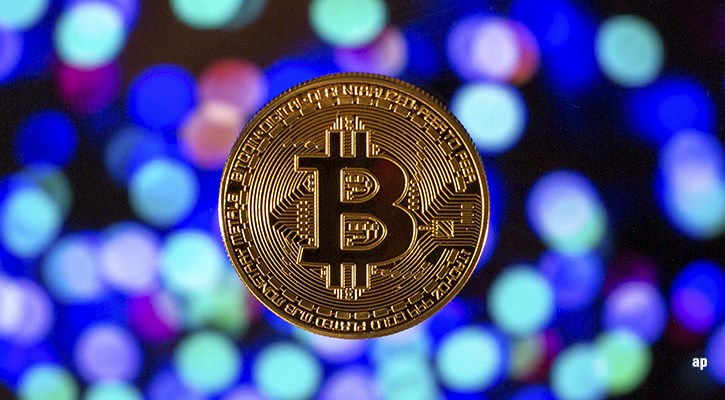
Let me tell you a true story, which has been anonymized to protect the identity of the people involved.
A family friend (Alex) has been irritable and distant over the past few weeks, starting around April this year. With the situation with the coronavirus being what it is in both Canada and India (the countries where Alex’s family is based), I chalked it down to pandemic stress. I kept in touch generally, asking about the health and safety of their family, and their own state of mind.
This weekend, I was told what had been happening. At the start of the year, Alex was approached by a ‘financial advisor’ representing a hedge fund that promised to double, nay, triple, whatever capital was put in, in a very short period. Alex was skeptical but handed over $500, an amount they felt comfortable losing. Sure enough, a few weeks later, Alex received a cheque for $1,000. Money doubled, that easily. Alex was hooked, and handed over an additional $35,000, a sizable chunk of the family’s savings towards the down payment on their first home. With home prices in Canada being what they are Alex thought a larger down payment would benefit the family.
The ‘advisor’ vanished – he stopped picking up calls, answering texts or emails. Alex’s money was gone. Of course, the family would be furious when they found out, so in desperation, Alex started looking for money elsewhere. Alex has been looking for love, and has been active on dating apps, where a woman said she had the solution – cryptocurrency. With Elon Musk’s love for Dogecoin, Alex believed cryptocurrency was ‘legit’, and so the woman was given the last of Alex’s money: $10,000.
She too vanished. Our friend lost $44,500 (the hedge fund did give back $500, after all) in the span of a few weeks.
This is not an isolated story. We all have received emails from rich Nigerian princes who want to leave us all their wealth, or phone calls from ‘The Legal Department of the Tax Agency,’ claiming we owe sums that can only be cleared through iTunes gift cards. Mostly, we can laugh them off, and in some cases, scam the scammers.
But not all scams are as easy to identify. For instance, simple social media trends, or challenges, might actually be ways for scammers to find out personal information, like the answers to your security questions.
With the ubiquity of these schemes, how can you protect yourself?
1. Question Everything
This is the most important way in which you can protect yourself, not just from financial fraud, but fraud of most kinds. If something seems too good to be true, it probably is.
When you meet with such a deal ask plenty of questions, including why are you offering this to me? What do you (the deal maker) gain out of it? Why is there such urgency? What happens if I wait for a few days and then respond?
If the person being asked the questions gets mad or stops responding, that’s a big red flag.
2. Review All Accounts and Passwords
Keep an eye on all your bank accounts, and credit cards. Check your statements regularly, and make sure you recognize all of the transactions on the statements. And though it may seem obvious, keep your passwords private, and complex. And don’t reuse passwords for multiple accounts.
3. Never Share Personal Information on Social Media
Before the pandemic, we’d probably have said never share personal information online, in fact, we did say that a few years ago. But the pandemic has moved a lot of our life online now, and we now open bank accounts, investment accounts, and even apply for houses online. In these circumstances, share information, but only when you’re completely sure of who is getting this information. And never share any banking information, credit card information, or personal identity details on any social media.
4. Protect Your Identity: Track Your Statements
As Morningstar’s director of personal finance Christine Benz explained in a piece on protecting against identity theft, “one of the best ways to be pre-emptive about identity theft is to scrutinize the transactions on your bank and credit card statements to ensure that they're in line with the transactions you've made. And if you identify a discrepancy, notify the financial institution immediately, first via phone call and then by certified mail, requesting a return receipt. In addition to combing your statements to make sure that all of your debits and credits are truly yours, I'd also recommend tracking the dates you receive your statements for the next month. That will give you an idea of when to expect them in future months.”
You can find the other tips to help you protect your identity here.
5. Monitor your Credit
You can get your credit reports for free once a year, so make sure you check your credit reports, at least annually. Keep an eye on your credit with the help credit monitoring services from major credit bureaus like TransUnion. There are also free services available from the likes of Credit Karma in the U.S. and Canada. This will help you identify any access to your credit file that you might not have authorized, halt any applications before they become loans, and take action if anyone succeeds in accessing credit in your name.
6. Is it Amazon? Or Amaazon?
Is there an extra ‘o’ in the email from Google that you received? Or is the logo for LinkedIn just slightly off? Scammers often use common brand names to trick people and get through mail filters. And thinking we’re working with trusted companies, we might unwittingly fall for the scam. Be sure you’re working with the brand, site, or person you know and trust, before sending over any financial information.
7. Love Can Hurt
Alex found this out the hard way. Be very careful on dating sites, especially with money. For one, the connection you make online may not be with the person it seems. When we look for love, we tend to lower our inhibitions, and if we think we have made a real connection, we try and keep the connection going no matter what. If you’re faced with a situation in which someone you recently met asks for money, before rushing in to help, ask a couple of questions. And before you do send any money over, talk it over with a trusted friend, or pretend someone else came to you with this same situation, asking for advice. Would you advise caution? In which case, that’s what you should do.
This leads us to the final, perhaps most important rule:
8. Don’t Send Money to People You Don’t Know
The Nigerian prince in your emails turned out to be 67-year-old Michael Neu of Louisiana, USA, the police found in 2017. Goes to show, things aren’t always what they seem. No matter how urgent – your second cousin’s friend is hurt, or a traveller needs your help – don’t ever send money to someone you don’t know. And even if you are sending money to people you do know, verify things before you send anything, because once you send money over, it can be impossible to ever get back.
On The Long View podcast, Benz and Jeff Ptak, Morningstar’s director of manager research, spoke to Ben Carlson on How Not to Get Scammed. Here’s what he said on the importance of staying vigilant to protect your own interests:
“The simple stuff is just obviously doing your homework and having a good decision-making process in place. It sounds so simple and easy, but just knowing what you own and why you own it helps. It's your money; no one is ever going to care about it as much as you are. So, even if you get outsourced advice from someone, you still have to understand what is going on in there and what's the decision-making process and what are they putting you in.”
Listen to the whole Long View podcast from Morningstar here.












.png)









